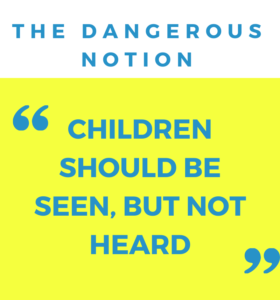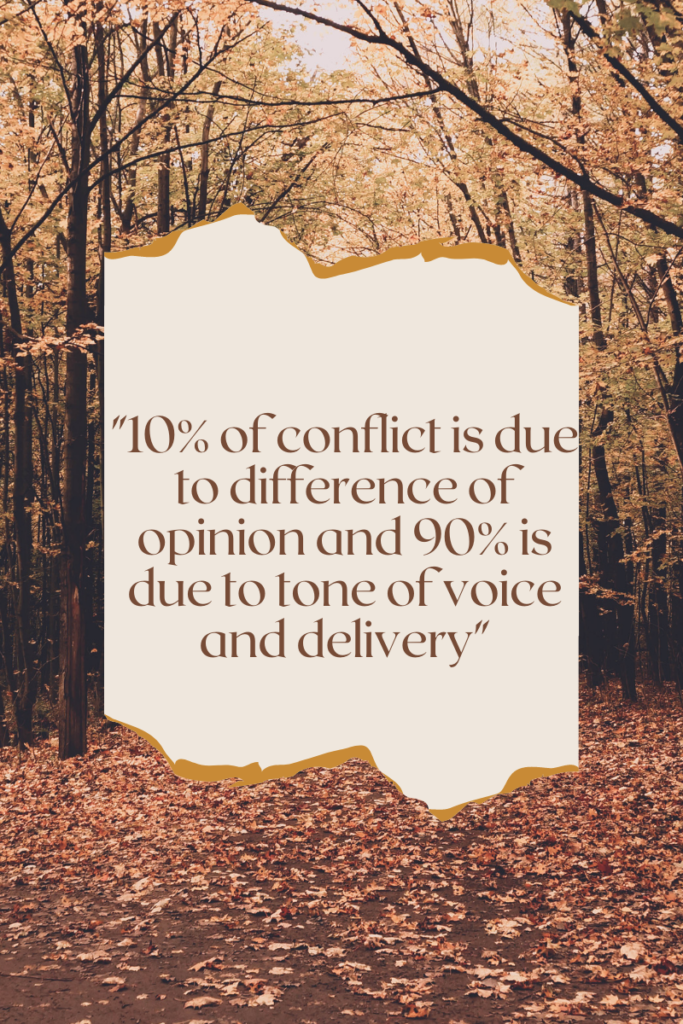When we grew up as kids, most parent’s philosophy on parenting was pretty simple: I am the parent, you’re the child.

For most people growing up in the 80’s and even 90’s this was true in one form or another.
Sure we had happy childhoods with loving parents, but when it came to the parent and the child relationship, the notion of kids having any upperhand in the relationship was null.
And while this idea of “I am the parent” is still important to a certain degree, our world has drastically changed in the last 30+ years.
We must be better. We must progress and improve as parents so our kids can be better than we are today.
Our children need respect.
They need us to respect them. So what are we saying?
Should parents respect their child?
Yes. Respecting your child will teach them to respect others and you as a parent. It will give them confidence in who they are as people and in their abilities. More importantly, it will teach them to respect and value themselves when other’s seek to do otherwise. It all starts with you as a parent modeling respect.
What do we mean when we say respect your child?
Respecting your child does not mean don’t discipline. It doesn’t mean let them do as they please. And it certainly doesn’t mean they can misbehave without consequences.
When we talk about respecting your child, we are talking about treating them as what they are.
Human beings.
Kids are not just drunk adults stuck in little bodies as many would claim.
Although they certainly do seem that way sometimes.
Respecting your child means validating their emotions, thoughts, wants and needs as human beings. The same way you would validate any other human being.
It means listening to their concerns and thoughts without dismissing it as “oh, they are just kids.”
It means holding conversations with them with questions that will evoke their brains to really think and talk to you.
It’s letting them know and feel that whatever THEY FEEL is important and you HEAR THEM in every sense.
It’s asking versus always demanding they do exactly as you say. Would you like it if someone demands something of you without asking first?
No. You would probably get pretty upset. So why is it we are surprised when a child throws a hissy fit when a parent angrily demands they do something?
There is a time and place for demands, but refraining from making it the first option we go to, will help our kids feel respected.
So when we say respect your child, it simply means…respect your child as you would respect any other person.
Why is it important to respect your child?
It builds a strong sense of inner confidence in them
We don’t want self entitled kids who believe the world owes them anything and that everyone is as good as person as them.
We want strong kids who understand that life, while awe inspiring beautiful, can be tough and that they will come across people who will not like and disrespect them.
But if you show them the respect they deserve as young children, they will navigate these circumstances with better grace because they KNOW THEIR WORTH.
![]()
You showed them their worth and they won’t place it in negative circumstances they can’t control in their life. They will place it deep inside where you instilled it in them guiding them like a beacon in the night.
They won’t let others disrespect them
Touching on the point above, a child who is respected at home will understand what respect is through your model and relationship with them.
They will understand what respect is and how it feels.
And through more modeling and talks with them, they will know when they are being disrespected by others and won’t accept it.
They will learn to respect others.
A child who is respected will respect others. The old adage of “everything starts at home” is true. Everything starts at home. What their young minds see from you, they will subconsciously or consciously imitate.
They will respect you!
When you respect your child, they will be more likely to respect and listen to you. Why?
People often act out in irrational ways or anger because they are misunderstood.
Young kids are constantly trying to express themselves through actions, words etc.
Many tantrums or melt downs are because they feel they are not being “heard”.
When your child feels heard and that you “get it”, the misbehaving won’t be as common.
It’s not an all in one solution but once they feel heard, they are much more likely to listen to what you have to say.
They will learn to resolve conflict, confidently and calmly.
Kids will fight. Kids will argue. They will argue with you, their siblings, their friends and argue about it all.
But again, most of the time it is because they feel they are not being heard. If we approach kids with respect when they are upset, instead of dismissing their feelings of anger as fussiness, they will feel heard.
A method we touched on to stoping sibling rivalry aims at dealing with conflict with respect and calmness by letting kids explain why they are upset in the first place.
In essence, instead of telling a child to “be quiet” or stop fighting, acknowledge their feelings and that they are upset.

In our “order in the court room method” we would sit our kids down when they are fighting with us or each other and let them tell us why they were upset.
Without interruption or judgement.
Taking on a calm demeanor, looking them in the eye and even kneeling to their eye level are ways to show them you really care about what they have to say.
Methods like this have been shown to increase a child’s problem solving ability and emotional control with teachers who practiced this in school settings.
When two kids would fight in class they would calmly sit them down and let each one of them explain their side of the story without judgement or anger.
The teachers found the kids would come back with a resolution and quickly become friends again.
Ways to respect your child
Respect their bodies
Often you might see parents ordering their young kids to kiss or hug a family member as a form of “hello” when the child is refusing.
Your child should not be forced to hug or kiss ANYONE.
Respect their boundaries, let them have control over who gets to hug or kiss them. This not only instills confidence but it is also teaches them no one is allowed to touch them without their consent and their bodies belong to them and only them.
When you tell them they don’t have to kiss or hug anyone they don’t want to, it gives them a sense of control over themselves and let’s them see you respect their feelings and boundaries.
Speak to them, don’t demand from them
Eric Davis, author of “Raising Men: From Fathers to Sons: Life Lessons from Navy SEAL Training” explained this point perfectly.
He explained a moment when it was bedtime and his daughter was still on her tablet. His wife took the tablet away from her and demanded she go to bed. He pulled his wife aside and said:
“how would we like it if someone just ripped something from our hands and demanded we do something? Let’s just ask her how much time she has left.”
Instead, he suggested you respect the child. Just like you would respect any adult. Ask them how much time they have left and if they are almost done because it’s bedtime, give them advance notice and give them some time.
Obviously there are times when we must make things happen with our kids and they won’t have much of a choice, but the point here is to minimize this and treat them the way you would want to be treated.
Listen to them and have real conversations with them
How many times have we seen kids blabbing way and parents are just ignoring them, or telling them they don’t have time to just listen to THEM.
I can’t count the amount of times my kids were trying to tell me something and I was so wrapped up in what I was doing, that I didn’t realize they were helping me. That these little people actually had the answer to my problem at the time!
This is not just about listening to them when they might have an answer for you, but it’s also about letting them talk about what they want to talk about. As silly as it may be, it’s important to them.
Open your ears, listen and engage.
This, again, makes them feel validated, heard and respected.
Even if it is about a bird, who ate peanut butter and pooped it out so the other birds can eat it.
Lead by example
Don’t ask your kids to do something, you don’t do.
Kid’s don’t listen to what you say, they watch what you do.
Be aware everytime they are around. Be aware of the way you treat people. The way you talk to people. What you say. How you control your emotions.
Also think about the small things. When it’s winter my kids want to run outside without their coats, but I explain to them why they have to wear it. Once they put everything on, I go out with them in a hoodie.
They’ll look back at me and ask why I don’t have a coat, hat and gloves after the verbal tirade I just went on.
My wife would look at me and we both know: I have to put my coat on.
It sounds small, but it’s about actions with kids. Not just talk.
Engage in what they want to do
Listen, I don’t always want to play tea party.
I don’t always want to race tiny cars down my hallway..
I don’t always want to play “bad guy” and chokeslam my kid on the bed like the undertaker.
Actually, that’s not true. I love play wrestling with them!
But…you get the point.
Play games your kids want to play. Let them know you can be interested in what they are into.
How many times will your kid call you over to watch a “cool part” in the movie they are watching? Show them you are interested in what they have to show you.
What respecting your child doesn’t mean
Respecting your child doesn’t mean please them at all times.
Respecting your child doesn’t mean if they say no to something you need them to do, you should leave them alone.
Respecting your child does not mean your child DISRESPECTS YOU.
It doesn’t mean they yell at you.
It doesn’t diminish the fact that at the end of the day YOU ARE THE PARENT.
It simply means always first and foremost treating them as people, not just kids to obey your every demand. It means not brushing their thoughts and emotions aside because they are just “silly kids”.
In conclusion, a lot of the old generation of old school parenting might disagree with the above notion, but this isn’t 1985. We must do things better. We must parent better. Why? Because we know better and we want our kids to be better than us.


I’m so sending this to my parents